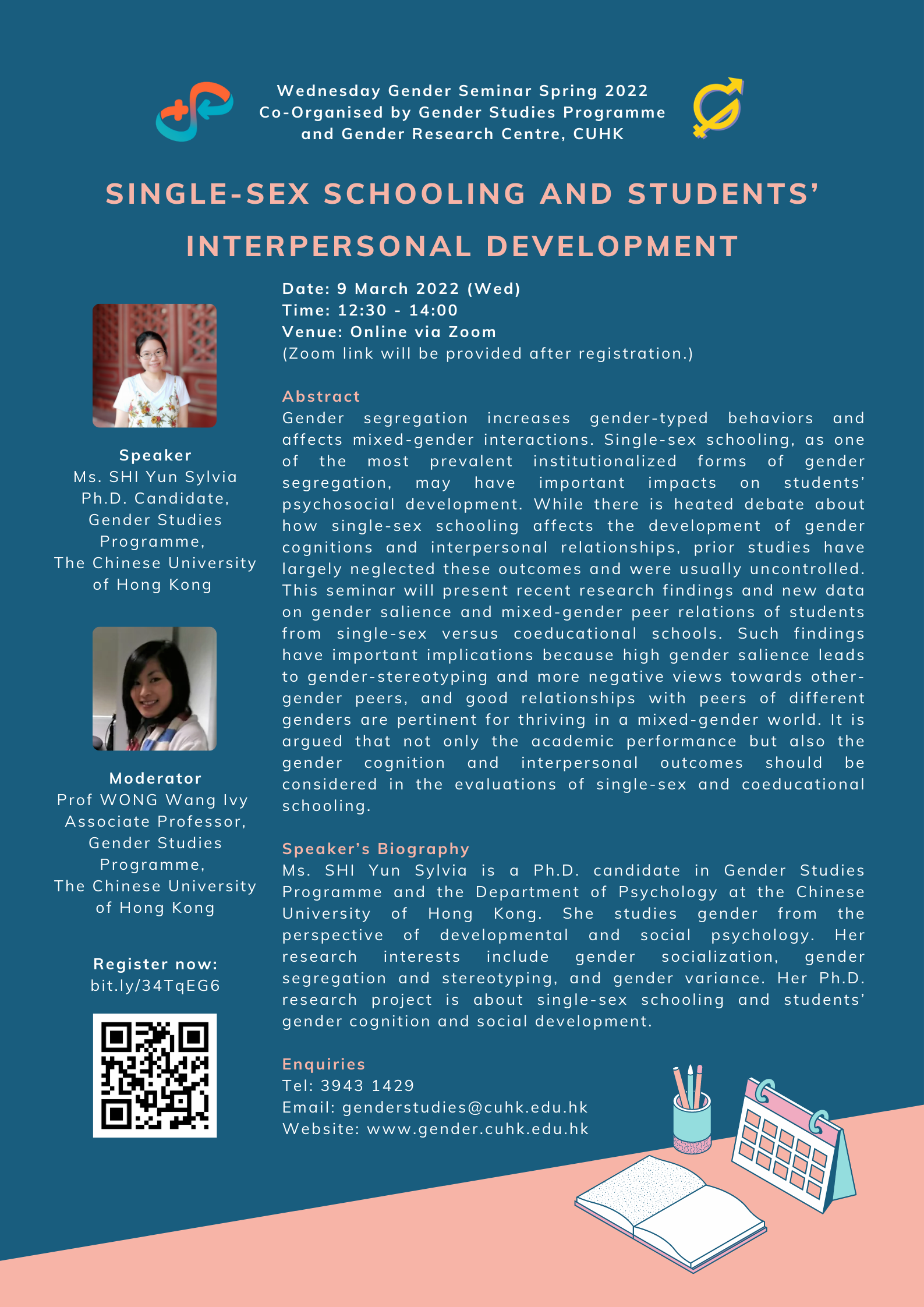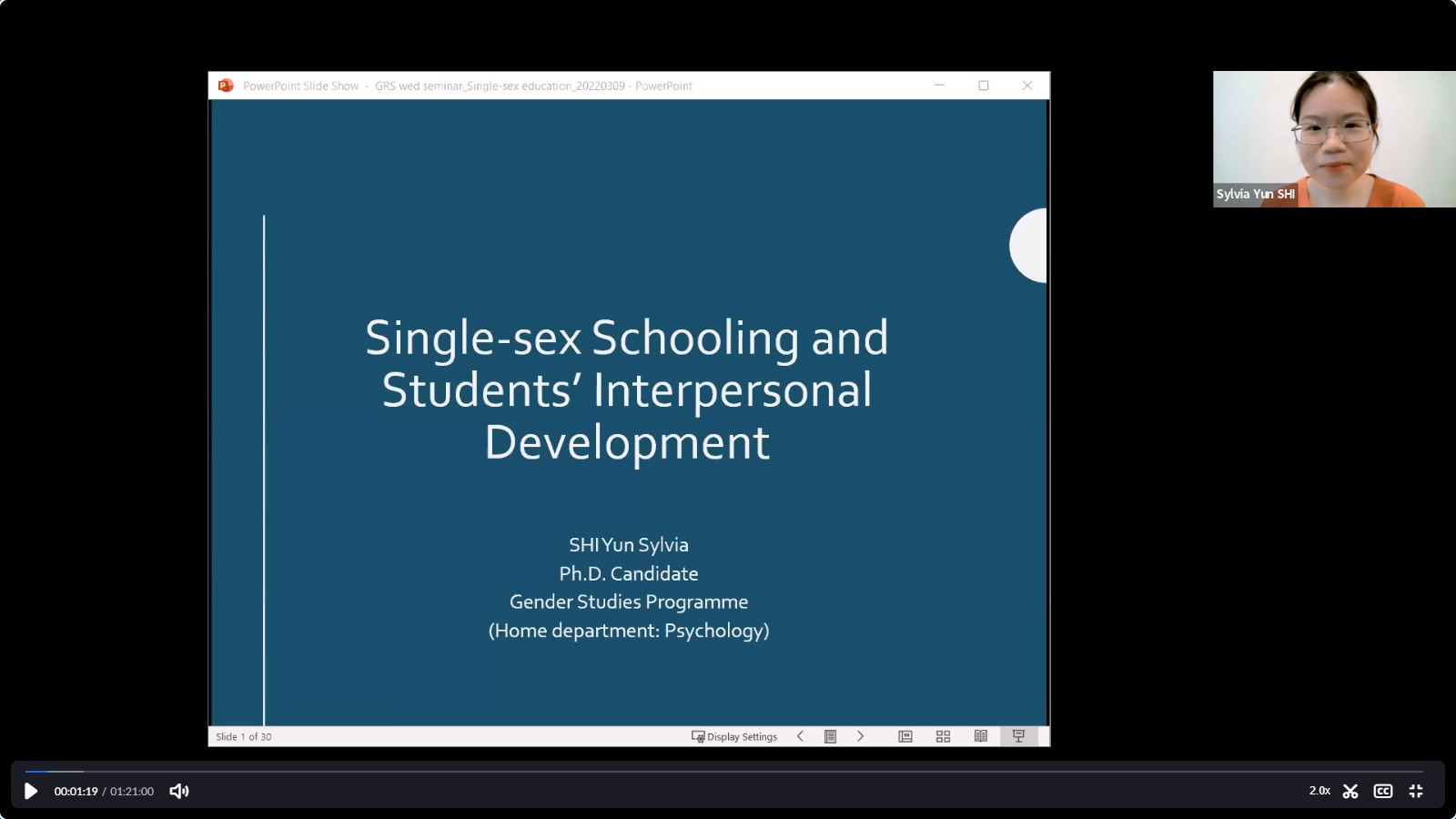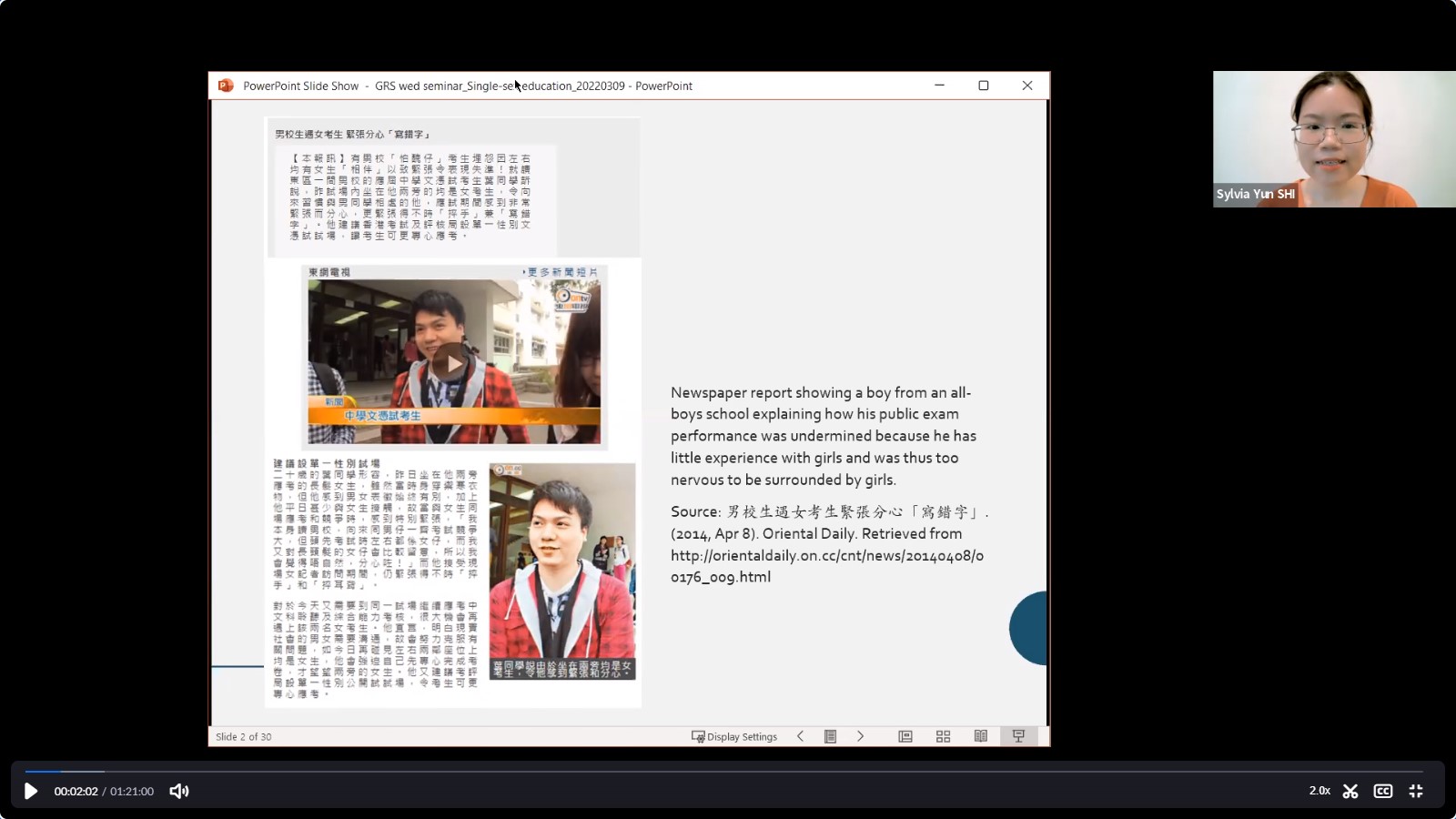Ms. SHI Yun Sylvia, Ph.D. Candidate in Gender Studies Programme presented her research on “Single-Sex Schooling and Students’ Interpersonal Development” at the Gender Seminar on Wednesday, March 9th.
As a form of institutionalized gender segregation, single-sex schooling was initially set up to make up for girls’ lack of education or secular reasons. Nowadays, this form of schooling remains common and resurges in recent years.
However, single-sex schooling is a controversial education form. Some people argue that it benefits both boys and girls from different perspectives. Others disagree with the supportive claims.
By reviewing developmental intergroup theory and peer socialization theory, Ms. Shi’s research aims to answer the following research questions: do single-sex and co-ed students differ in gender-related cognitive outcomes? Do single-sex and co-ed students differ in same gender and other gender relationship outcomes? Would such differences (if any) change after graduation when students enter a mixed-gender world?
Regarding the cross-sectional study, there are two participant samples, including boys and girls from local single-sex and coeducational schools. The first group involves 2059 students recruited from HK high schools, and the second includes 456 students from local universities. The former finishes questionnaires in class, whereas the latter in the laboratory. About the measures, the higher level of gender salience is reported in the single-sex high school sample. In addition, the single-sex school sample reports having lower percentages of other-gender friends and close friends as compared to the coeducational school sample. What’s more, single-sex high school and college students feel more mixed-gender anxious, except for that the difference between college samples is not statistically significant.
In the longitudinal study, two time lines were set, namely the final year of high school and after graduation. The time interval between the two time lines was 16.62 months. The sample was drawn from more than 100 local high schools in Hong Kong, and the measures includes demographics, gender salience, and gender stereotyping. This study shows that gender segregation in single-sex schools affects students’ gender cognition and entails social outcomes, including stereotyping, friendship, and sexual orientation. Although these effects diminish over time, students in single-sex schools have fewer social skills in mixed-sex life after graduation. Many questions remain to be answered about the impact of single-sex education, especially on students’ non-academic outcomes.
Written by: GAO Xinning, ZHOU Shanshan, ZHANG Kunyu





A
A
A
Contact Us